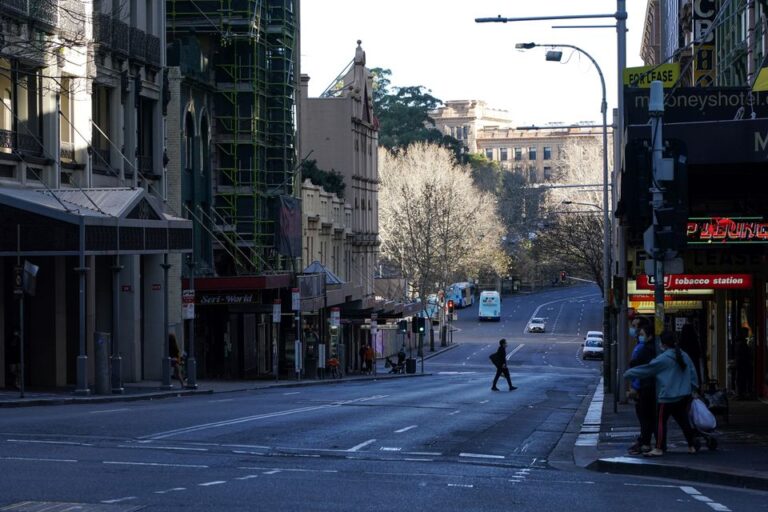
SYDNEY, (Reuters) – Australia’s Victoria state reported a slight rise in locally acquired cases of COVID-19 on Thursday after nearly a week of a hard lockdown imposed to contain an outbreak of the highly infectious Delta virus strain.
Twenty-six new local cases were reported, up from 22 a day earlier, taking the total cases in the latest outbreak to almost 130. All new infections are linked to the current outbreak and 24 were in quarantine throughout their entire infectious period.
More than half of Australia’s 25 million population, including the country’s largest city of Sydney and the states of Victoria and South Australia, is under lockdown, with residents restricted to their homes except for urgent reasons.
Sydney, the worst affected city, is in a five-week lockdown until July 30 although a growing number of cases where people have been infectious in the community has raised the prospect of the tough restrictions extended further.
Nearly half of all new Sydney cases recorded a day earlier with the Delta strain were moving around in the community, particularly in the city’s southwestern suburbs, stoking worries of a significant rise in infections.
South Australia, meanwhile, is bracing for more cases on Thursday as officials track two chains of transmission – a winery and a Greek restaurant in the state capital Adelaide. Five of the six cases reported late on Wednesday were linked to the winery.
With large swathes of businesses shut down in the country’s two largest cities, Australia’s A$2 trillion ($1.5 trillion) economy could take a big hit from the latest lockdowns, which had returned to pre-pandemic levels thanks to low COVID-19 cases in the early months of 2021.
Federal Treasurer Josh Frydenberg on Thursday said he estimated the lockdowns could cost the national economy around A$300 million ($220 million) a day.
“It’s going to have a hit on the economy. We’ll see that in the future jobs data as well as in the GDP growth numbers,” Frydenberg told the Australian Broadcasting Corp.






